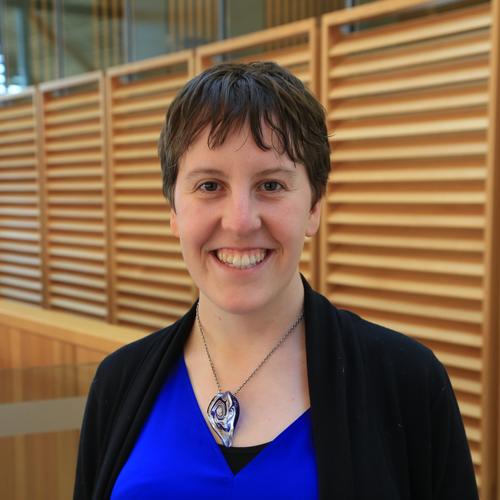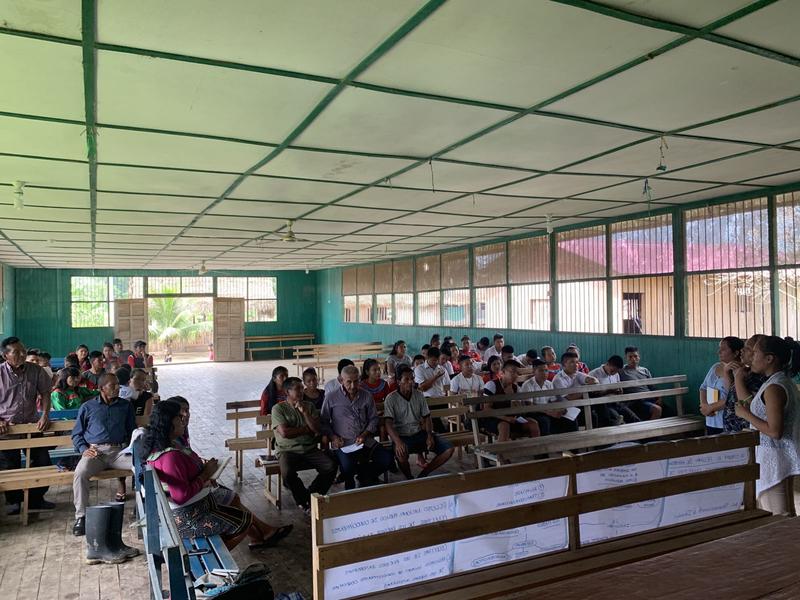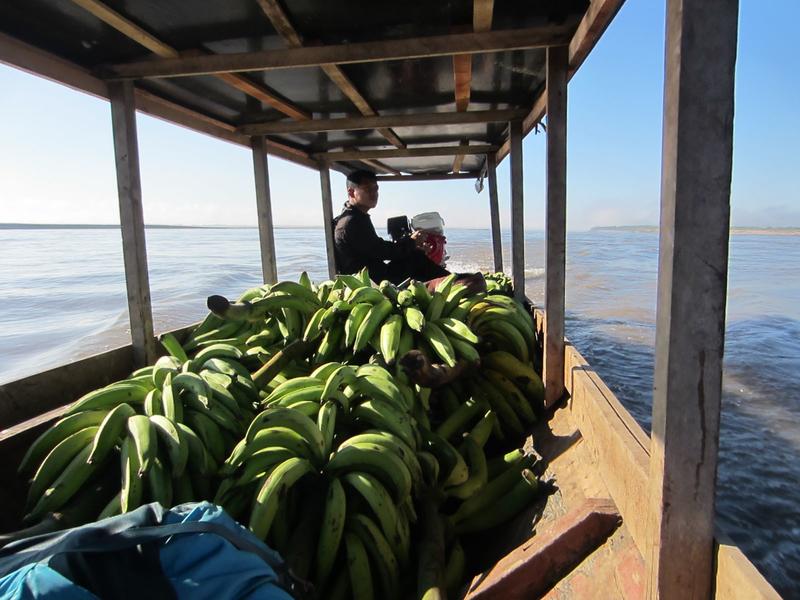
Melaina Dyck (MESc 2019, left) spent her 2018 TRI Fellowship learning about the livelihoods of smallholder farmers belonging to the Shipibo indigenous people in the Peruvian Amazon. Over the course of three months, Dyck conducted participant observation and interviews in seven different Shipibo communities in the Ucayali region and with Shipibo organizations in the city of Pucallpa. Her master’s thesis considered: the perceptions of environmental changes, market instability and insecure territorial rights that make smallholder farmers’ lives precarious, and the roles that farmers, political leaders and researchers play in constructing the concept of 'indigenous.' Dyck reflects, “TRI’s support of independent and self-reflexive research was essential to the success of this project. I collected a lot of valuable data and grew as a researcher. I strive to avoid being a helicopter researcher who lands, extracts knowledge for the good of my own career, and leaves. My work now is guided by the research practices I learned at F&ES.”

Figure 1. Indigenous intellectual property rights workshop (November 2019).
In August of 2019, Dyck returned to the Ucayali region of Peru as a Global Justice Fellow with the Peter and Patricia Gruber Foundation. The Gruber Fellowship, which is administered by Yale Law School, provides financial support for Yale graduates to implement one-year projects concerning global justice and women’s rights. Dyck is investigating how Shipibo communities can benefit from a government system intended to protect intellectual property rights for traditional ecological knowledge. Dyck conceived of this project during her TRI Fellowship. Dyck started to think about indigenous knowledge rights while attending a workshop on Peru’s intellectual property rights system. Dyck secured the Gruber Fellowship in order to spend a year digging into those questions.
Figure 2. A Shipibo banana farmer on the Ucayali River, Peru, transporting produce to market (July 2018).
Dyck strives to prioritize community needs by using participatory research and engagement approaches. As such, Dyck is working closely with Farmacia Viva Indigena (“Indigenous Living Pharmacy”)—a committee of residents in one Shipibo community that maintains a forest garden of medicinal plants through which native plant species and traditional medicinal knowledge is kept alive. Dyck has collaborated with Farmacia Viva to identify goals for the garden project, worked with women in the community to organize a workshop in which women taught each other about plant remedies, and facilitated a visit by government representatives from Lima who led two workshops on indigenous intellectual property rights. Dyck emphasizes that the TRI fellowship was a critical opportunity to develop research skills that she is currently applying as a Gruber Fellow to support indigenous communities who are advocating for their rights.
